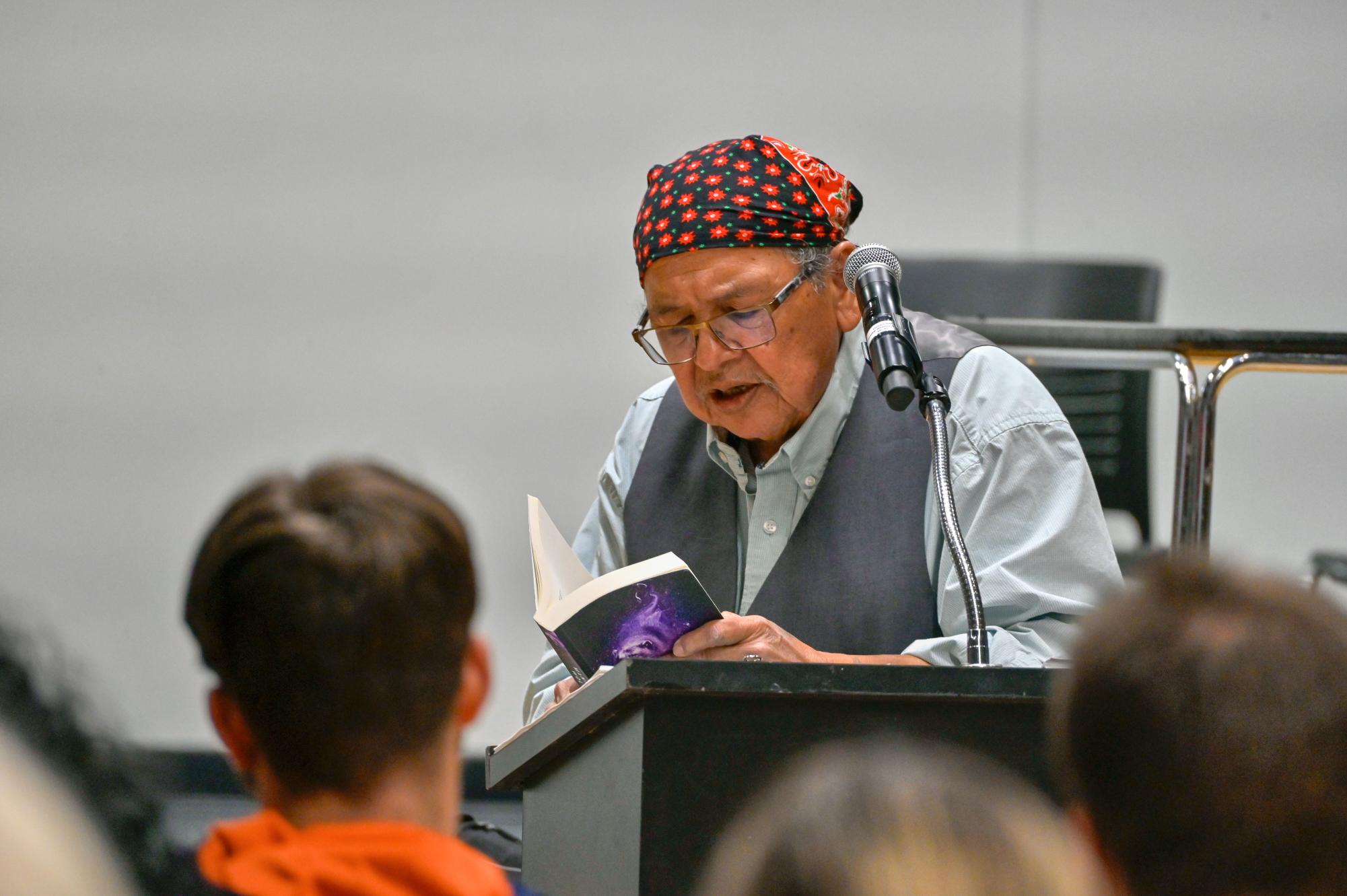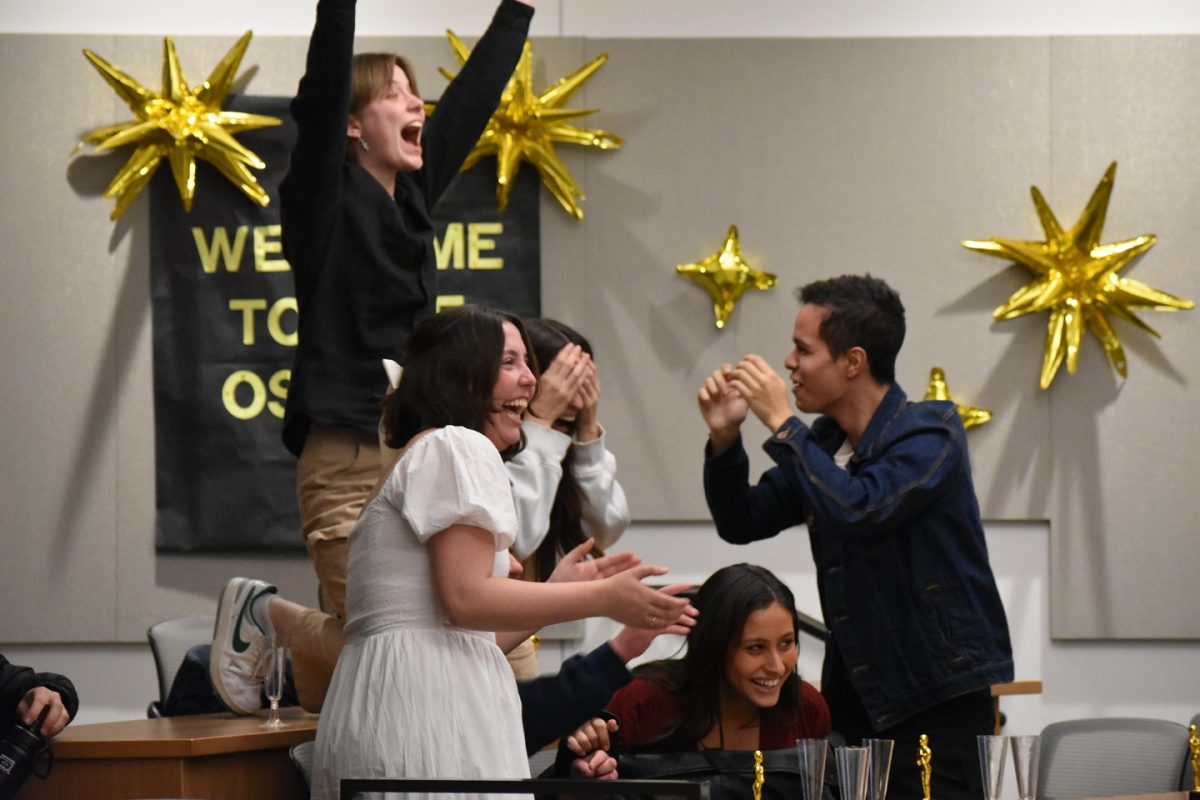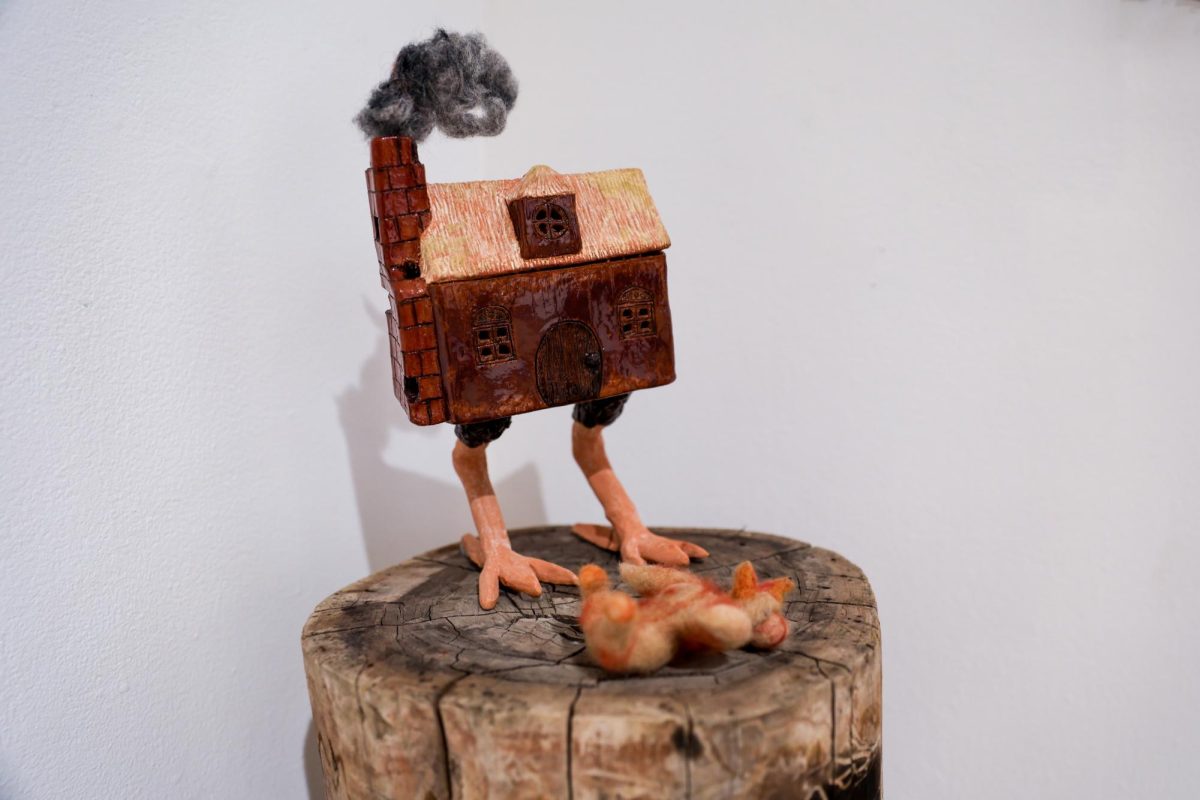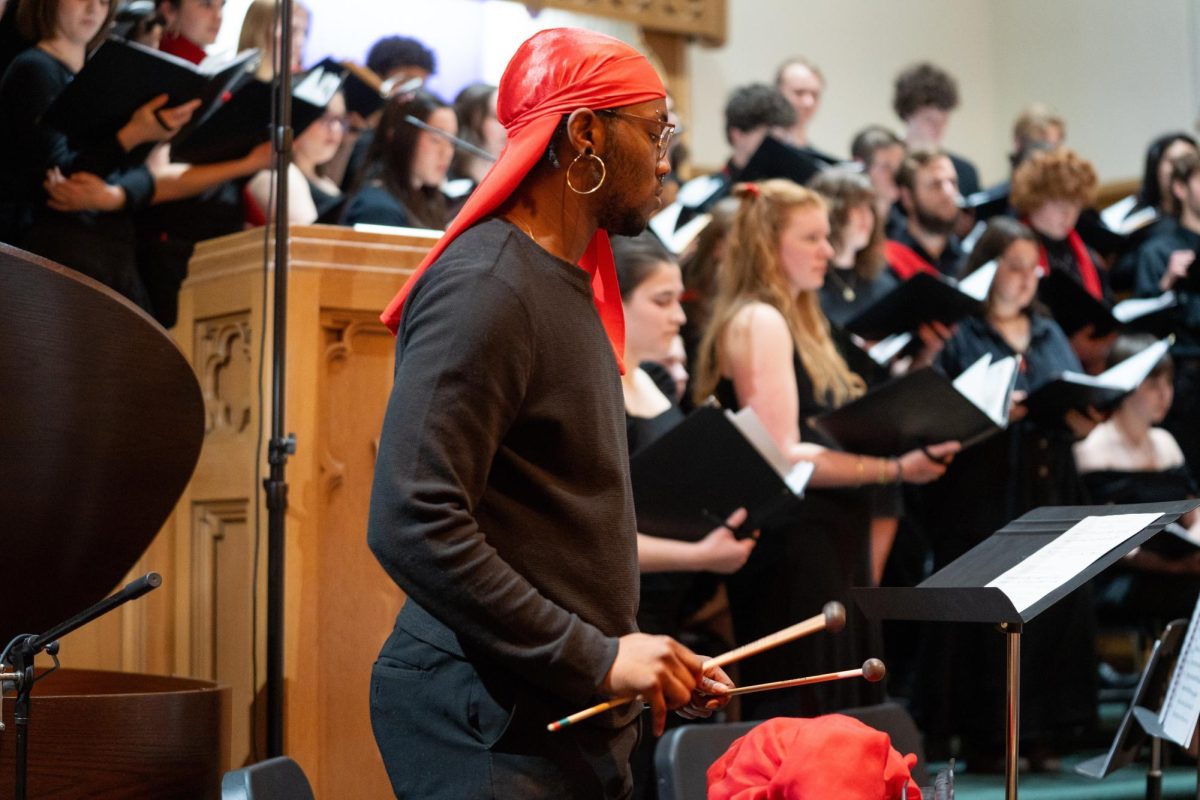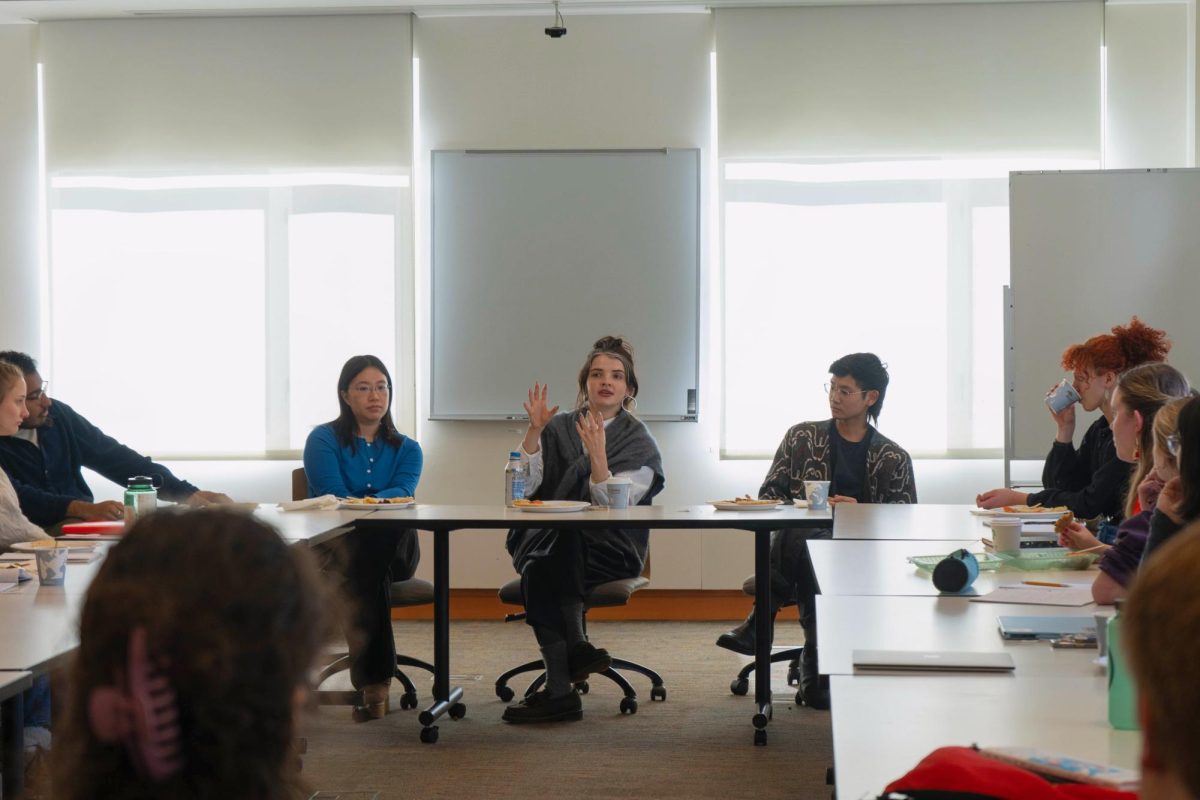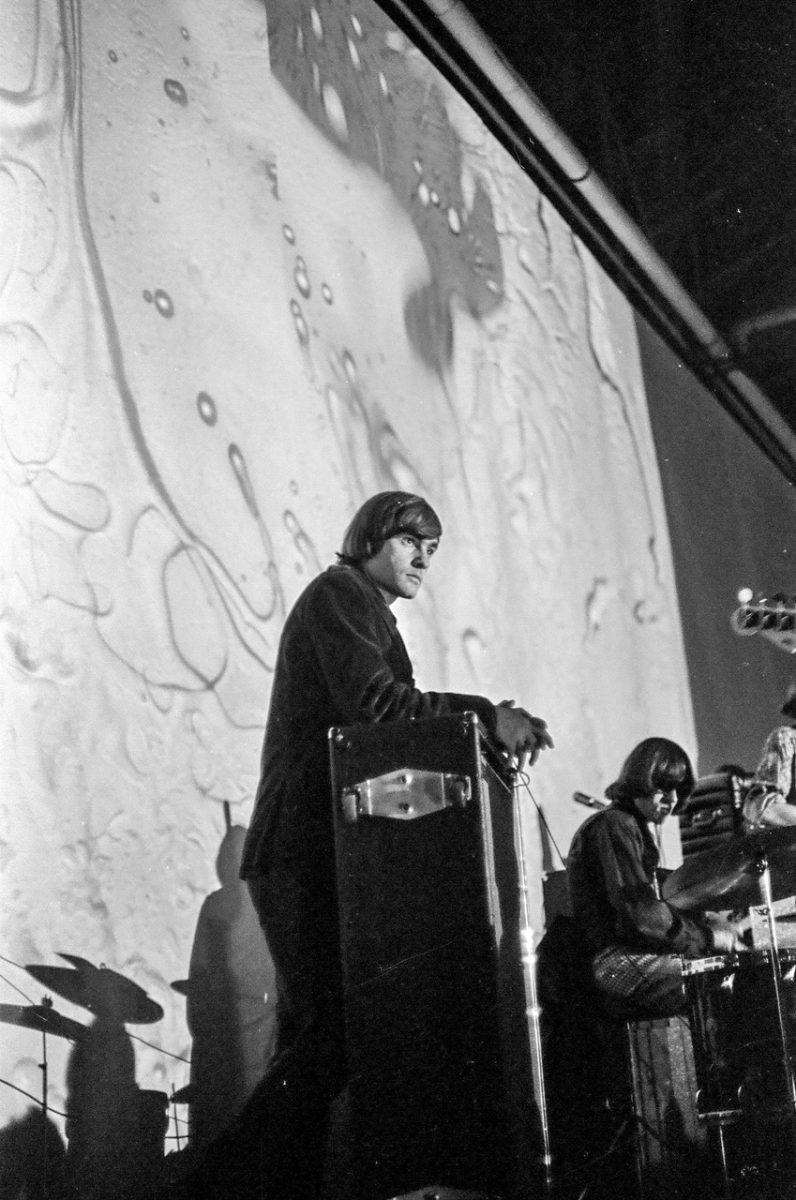On March 4, as the rain drumming on the roof echoed lightly through the packed Harris Center concert hall, Ray Young Bear `76 talked, sang and conducted a dance performance at an event co-organized by Pride vs. Prejudice, the Center for the Humanities and Writers @ Grinnell.
Young Bear said that he considers language, culture, spirituality and history to be the four pillars of a society. His work weaves them all together to form his poetic voice.
During the event, he used these concepts to structure his thoughts on the Meskwaki community to which he belongs as he read excerpts from “Manifestation Wolverine,” his award-winning 2015 poetry collection.
A bilingual writer, Young Bear said that language is a principal concern as he works to preserve Meskwaki culture by preserving the Meskwaki language.
“We are facing linguistic atrophy,” he said. “There’s far too much dependence on English.”
During the event, Young Bear talked about contending with the effects of colonialism on Native American populations and read poems including “The Reptile Decree from Paris” that explored these themes. Young Bear also discussed growing up despising the English language for what it represented, gradually becoming “addicted” to the language and its literature and eventually returning to his native Meskwaki.
“Poetry can be political,” said Young Bear. “I can defend the hunter; I can defend the fisherman with poetry.”
Young Bear said that power structures don’t fade, connecting the massacre of Native American tribes during the so-called discovery of America to Trump’s America and to Ukraine in the 21st century.
Isaiah Schlimm `27 and Amy Kan `27 of the student book club Pride vs. Prejudice encountered Young Bear’s work over the summer and reached out to Professor Stephen Andrews at the Center for the Humanities with the proposal of hosting Young Bear at Grinnell.
“We wanted to center voices in literature that are outside of the traditional canon,” Kan said. “And he was geographically accessible.”
Schlimm said, “We wanted to bring in authors from groups that aren’t normally talked about.” This goal coincided with the Center for the Humanities’ ongoing program of conducting talks addressing the intersection of indigenous knowledge, climate change and liberal arts. While the Center provided the necessary funding and experience, Professor Stephen Andrews, the Center’s director, said, “We wanted the students to take the initiative … We want to bring indigeneity into our curriculum, and bring students of indigenous background to our campus.”
Nature is central to Young Bear’s work. He discussed animism and the energy that pervades nature. As a prelude to reading the poem, “John Whirlwind’s Doublebeat Songs, 1956,” Young Bear narrated an anecdote about throwing snowballs at fireflies on a pinetree with his brother.
“I don’t usually yap,” Young Bear chuckled during his presentation. “I’m a quiet gentleman at home.”
When he does talk, Young Bear leapfrogs from one idea to another. His poetry, like his responses to questions, is a flurry of images. Young Bear termed his writing process “imaginative intuition.”
“You just compose spontaneously, and hope something comes out of it,” he said.
Young Bear described his own journey towards writerhood as incidental — he never set out to be a poet but was fascinated by the typography of letters on a page. He participated in the Upward Bound program for low-income students in 1967, crediting director William “Bill” Beyer as a supportive figure who helped him get his early poetry published in 1968. In 1969, he travelled to California to study at Pomona College, where he first encountered the work of Charles Bukowski, a crucial early influence.
“He saw things from the gutter,” Young Bear said. “And he spoke about it eloquently.”
The Harris presentation concluded with members of the Meskwaki nation performing a traditional dance with drums playing and Young Bear singing. The artists took the stage in a jingling, many-hued blaze of Meskwaki garb and performed five separate dances, each one highlighting a specific member of the troupe. For the final dance, Young Bear invited Professor Andrews and his wife, as well as the members of Pride vs. Prejudice, to take part in a rhythmic ring dance.
“His creative work is marvelous,” Professor of English Paula Smith, who attended at the event, wrote in an email to The S&B. “I encourage Grinnellians to go and encounter it on the page. We had an amazing chance, right in the Harris Center, to see the muscular power and glittering beauty of traditional dances.”
“Reading ‘Manifestation Wolverine’ has been a kind of revelation,” said Andrews.

